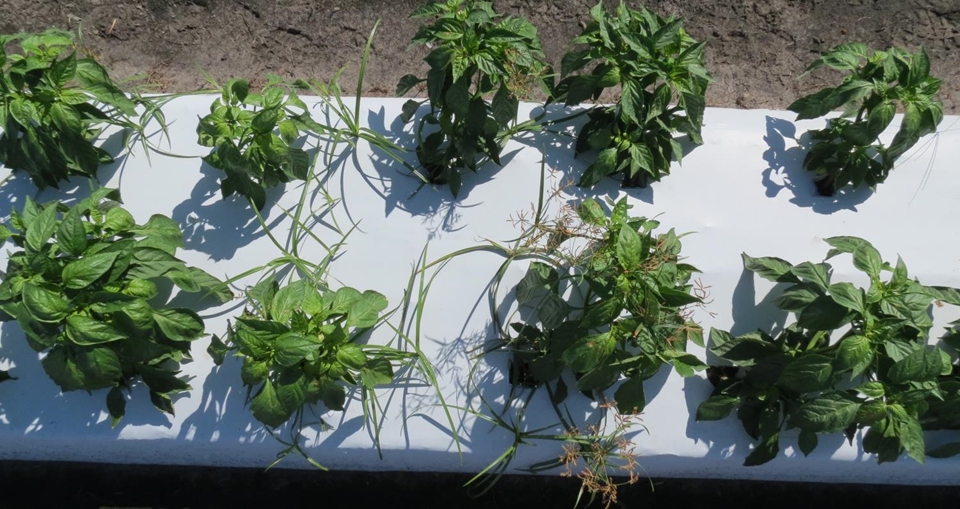By Clint Thompson An essential component of fumigation is likely to be in short supply this year. The ramifications will impact specialty crop producers across the Southeast. Johan Desaeger, assistant professor of entomology and nematology at the University of Florida Institute of Food and Agricultural Sciences (UF/IFAS) Gulf Coast Research and Education Center, updated attendees at last week’s Florida Grower …
Fumigation: Pros and Cons Discussed at Annual Watermelon Meeting
By Clint Thompson Despite stringent regulatory requirements and high costs, fumigation remains a vital tool in a specialty crop producers’ toolbox when managing certain pests. “The reality is there’s just some pests and some crops where that is our most reliable tactic,” said Josh Freeman, an agronomist and regional manager with TriEst Ag Group. “Consider peppers for example. You have …
Applying Herbicide Under Plastic Mulch
By Ramdas Kanissery Weed management is fundamental in successfully growing vegetables in Florida using a plasticulture system. Traditionally, this production system was reliant on fumigants like methyl bromide to control various soilborne diseases, nematodes and weeds. However, the phaseout of methyl bromide resulted in a lack of broad-spectrum activity and consistency in weed suppression in plastic mulched raised beds. This …
Recent Rains Could Delay Fumigation Process
By Clint Thompson Persistent rainfall across the Southeast in recent weeks could delay fumigation progress from specialty crop farmers preparing to plant their fall crops. Tim Coolong, associate professor in the University of Georgia College of Agricultural and Environmental Sciences, discusses how heavy rain events could keep producers from getting into their fields at a key point in the season. …
Register Now for EPA Certified Soil Fumigant Applicator Training
Florida specialty crop producers are encouraged to register now for the Environmental Protection Agency (EPA) Certified Soil Fumigant Applicator Training workshop, scheduled for Thursday, July 14 from 8:30 a.m. to 3:30 p.m. at the Hendry County Extension office in LaBelle, Florida. In order for an applicator to utilize fumigants, they must have a Florida Department of Agriculture and Consumer Services …
Soil Health: UF Scientists Receive Grant to Study Fumigation
By Brad Buck, (352) 875-2641, bradbuck@ufl.edu Fumigants are an essential tool growers implement before planting to manage soil health. They reduce harmful diseases such as Fusarium wilt and pests like root-knot nematodes and weeds that compete for water and nutrients. Their effect on soil diseases, pests and weeds help sustain production. But how does it happen, especially considering there’s so …
Certis Product Effective Against Plant Parasitic Nematodes
By Clint Thompson One of the worst pests of specialty crops in the Southeast has met its match with a new product from Certis Biologicals. It recently announced the launch of MeloCon® LC, which helps control plant-parasitic nematodes, says Karla Medina, Certis Regional Field Development Manager. “Nematodes are one of the worst hidden enemies that you don’t see on …
Lack of Consistency: Fumigation Erratic in Control of Weeds
By Clint Thompson Florida vegetable producers hoping to control weeds with just fumigation need to be mindful of its erratic effectiveness, says Ramdas Kanissery, a weed scientist at the University of Florida/IFAS Southwest Florida Research and Education Center. “The thing with fumigation, what we have observed, there will be good effects on nematode suppression, but when it comes to weed …
Nutsedge Management Key for Florida Vegetable Growers
By Clint Thompson Nutsedge may not be the most problematic weed Florida vegetable and specialty crop producers encounter every year, but it is a problem. Nutsedge is most concerning because it is the only weed to puncture through plastic mulch, says Nathan Boyd, University of Florida Associate Center Director and Associate Professor of Horticulture/Weed Science at the Gulf Coast Research …
Future of Fumigation: Is the End in Sight?
By Clint Thompson One of the most efficient ways to control nematodes is through fumigation. Ten years from now, that may not be the case, though, believes Johan Desaeger, UF/IFAS Assistant Professor of Entomology and Nematology. “I think the fumigants, although they’re still the standard, I don’t think 10 years from now there’s going to be that much fumigation left. …
- Page 1 of 2
- 1
- 2










